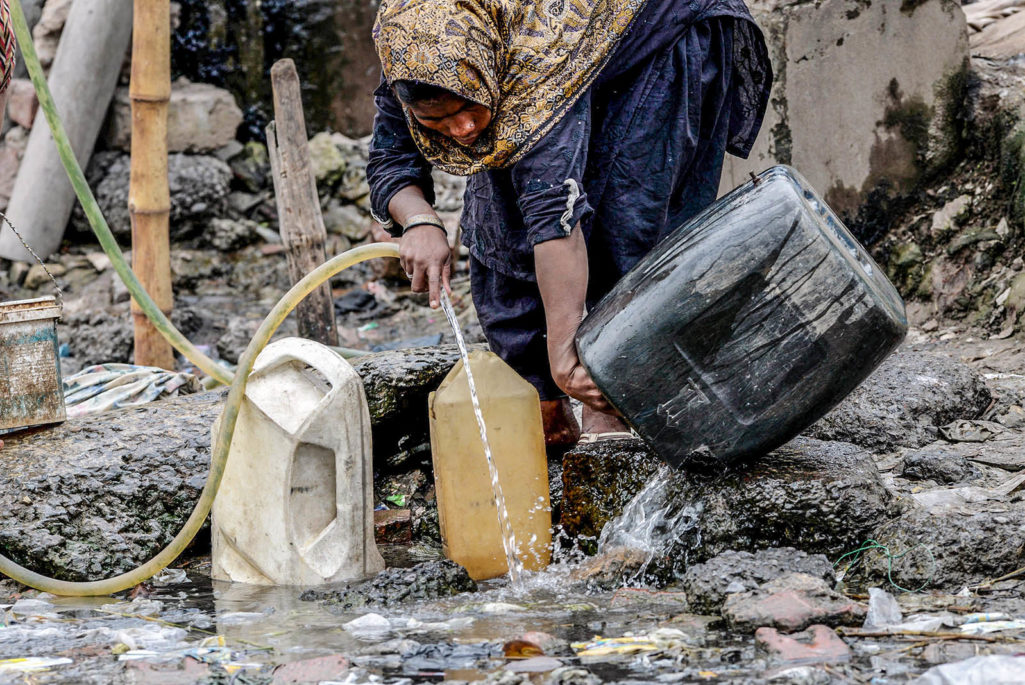Safe Water, Hygiene Policies Not Globally Implemented

A Pakistani woman fills jerry cans with water in Lahore. More than 2.5 billion people are in need of decent sanitation and nearly one in 10 has yet to gain access to "improved" drinking water, as defined under the UN's 2015 development goals.
Photo: Arif Ali/AFP/Getty Images
Billions across the globe still don’t have access to safe water in reliable and sufficient quantities, according a recent United Nations report.
The report emphasizes key areas of concern including inadequate water, sanitation and hygiene policies—knows as WASH policies—that contribute to the risk of spreading communicable disease in households and communities, as well as schools and health care centers. These poor WASH conditions—particularly in health care facilities—are a major contributing factor to the spread of Ebola in West Africa, the report says.
Despite this dire outlook, improvements have been made:
- Between 1990 and 2012, 2.3 billion people gained access to better drinking water sources
- During that same time, the number of children dying from diarrhea, strongly linked to poor water and sanitation access, dropped from 1.5 million to about 600,000.
Other key challenges noted in the report include:
Critical gaps in monitoring: Reliable information is vital to identify gaps in access and to inform policy. Though many countries have WASH monitoring frameworks in place, most report inconsistent gathering of data and poor capacity for analysis.
Weak country capacity to implement plans: Despite strong political support for universal access to water and sanitation, few countries surveyed have the capacity to fully implement their national WASH plans and conduct meaningful reviews.
Insufficient funding: Though international aid for the WASH sector has increased, national funding needs continue to outweigh available resources. Most countries report that current funding levels are insufficient to meet their targets for drinking-water and sanitation.
National WASH Plans Lack Implementation
Of the 94 countries covered in the report, more than 80 percent have policies in place to address the water and sanitation crisis. But most of these report only partial implementation of the plans.
WASH in Health Care Facilities Lagging
Basic WASH services are critical components in health care settings to effectively fight disease and infection. But the report found that WASH services are often lower for health care than in household settings. Less than 30 percent of the countries studied have implemented and funded WASH policies for sanitation and drinking water in health care facilities.





